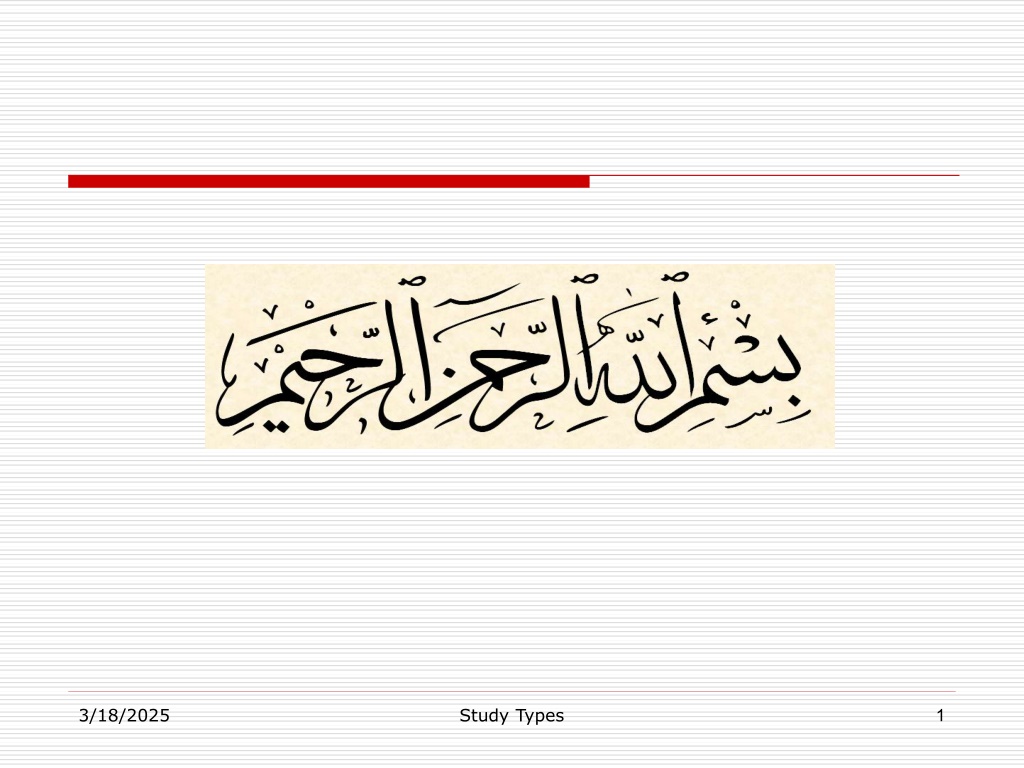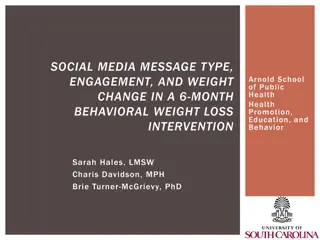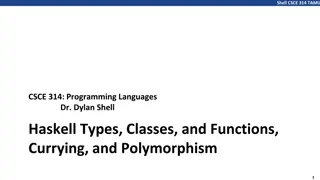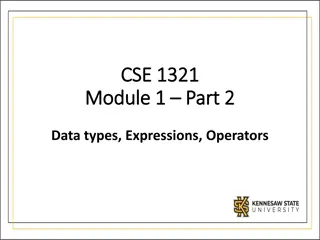
Understanding Different Types of Epidemiological Studies
Explore the various types of epidemiological studies including descriptive, analytical, observational, interventional, and more. Learn the differences between these study designs and their significance in healthcare research.
Download Presentation

Please find below an Image/Link to download the presentation.
The content on the website is provided AS IS for your information and personal use only. It may not be sold, licensed, or shared on other websites without obtaining consent from the author. Download presentation by click this link. If you encounter any issues during the download, it is possible that the publisher has removed the file from their server.
E N D
Presentation Transcript
3/18/2025 Study Types 1
Study Types Afshin Ostovar Bushehr University of Medical Sciences 3/18/2025 Study Types 2
Epidemiological Studies Analytical Descriptive Observational Interventional Case Report Cross- Sectional Clinical trials Case-series Case- Control Field Trials Ecologic Community Trials Cross- sectional Cohort 3/18/2025 Study Types 3
Descriptive Vs. Analytical A descriptive study is limited to a description of the occurrence of a disease in a population and is often the first step in an epidemiological investigation. Pure descriptive studies make no attempt to analyse the links between exposure and effect. An analytical study goes further by analysing relationships between health status and other variables. 3/18/2025 Study Types 4
A classic example of Descriptive study 3/18/2025 Study Types 5
Epidemiological Studies Analytical Descriptive Observational Interventional Case Report Cross- Sectional Clinical trials Case-series Case- Control Field Trials Ecologic Community Trials Cross- sectional Cohort 3/18/2025 Study Types 6
Case Report Case reports represent the most basic type of study design, in which researchers describe the experience of a single person. Case reports describe individuals who develop a particular new disease or condition and present a detailed account of the clinical experience of an individual study subject. 3/18/2025 Study Types 7
Case Series The characteristics of several patients with a specific disease are described but are not compared with those of a reference population. Often stimulates the initiation of a more detailed epidemiological study. 3/18/2025 Study Types 8
Ecological studies In an ecological study, the units of analysis are groups of people rather than individuals. Ecological studies can also be done by comparing populations in different places at the same time or, in a time series, by comparing the same population in one place at different times. 3/18/2025 Study Types 9
3/18/2025 Study Types 10
Ecological fallacy An ecological fallacy or bias results if inappropriate conclusions are drawn on the basis of ecological data. The bias occurs because the association observed between variables at the group level does not necessarily represent the association that exists at the individual level 3/18/2025 Study Types 11
Cross-sectional studies Measure the prevalence of disease and thus are often called prevalence studies. The measurements of exposure and effect are made at the same time. The key question to be asked is whether the exposure precedes or follows the effect. 3/18/2025 Study Types 12
Cross-sectional studies Relatively easy and inexpensive to conduct Useful for investigating exposures that are fixed characteristics of individuals, such as ethnicity or blood group. 3/18/2025 Study Types 13
Case-control studies Provide a relatively simple way to investigate causes of diseases, especially rare diseases. They include people with a disease (or other outcome variable) of interest and a suitable control (comparison or reference) group of people unaffected by the disease or outcome variable. The study compares the occurrence of the possible cause in cases and in controls. 3/18/2025 Study Types 14
3/18/2025 Study Types 15
Cohort studies Also called follow-up or incidence studies, begin with a group of people who are free of disease, and who are classified into subgroups according to exposure to a potential cause of disease or outcome. Variables of interest are specified and measured and the whole cohort is followed up to see how the subsequent development of new cases of the disease (or other outcome) differs between the groups with and without exposure. 3/18/2025 Study Types 16
3/18/2025 Study Types 17
3/18/2025 Study Types 18
Randomized controlled trials A randomized controlled trial is an epidemiological experiment designed to study the effects of a particular intervention. Subjects in the study population are randomly allocated to intervention and control groups, and the results are assessed by comparing outcomes. 3/18/2025 Study Types 19
3/18/2025 Study Types 20
Field trials Field trials, in contrast to clinical trials, involve people who are healthy but presumed to be at risk. Data collection takes place in the field, usually among non- institutionalized people in the general population. Since the subjects are disease free and the purpose is to prevent diseases that may occur with relatively low frequency, field trials are often logistically complicated and expensive endeavours. 3/18/2025 Study Types 21
Community trials In this form of experiment, the treatment groups are communities rather than individuals. This is particularly appropriate for diseases that are influenced by social conditions, and for which prevention efforts target group behaviour. 3/18/2025 Study Types 22
Community trials (Limitations) Only a small number of communities can be included and random allocation of communities is usually not practicable. Other methods are required to ensure that any differences found at the end of the study can be attributed to the intervention rather than to inherent differences between communities. It is difficult to isolate the communities where intervention is taking place from general social changes that may be occurring. Study Types 23 3/18/2025
3/18/2025 Study Types 24
Systematic review A systematic review attempts to collate all empirical evidence that fits pre-specified eligibility criteria in order to answer a specific research question. It uses explicit, systematic methods that are selected with a view to minimizing bias, thus providing more reliable findings from which conclusions can be drawn and decisions made. 3/18/2025 25
Thanks for your kind attention! Any questions? 3/18/2025 Study Types 26






















